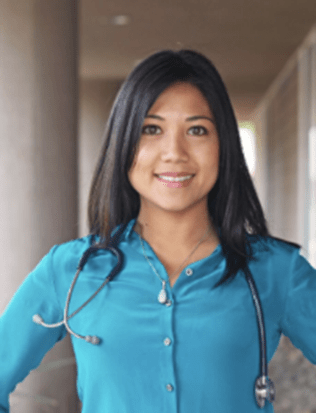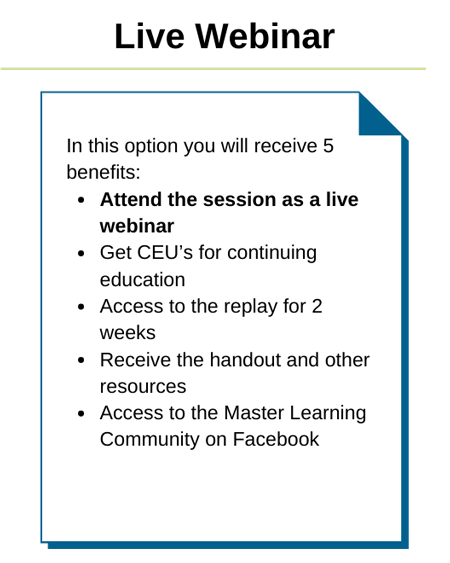
- This event has passed.
Unseen Injuries, Real Healing: Navigating Medical Trauma Treatment
March 27, 2024 @ 8:30 am - March 28, 2024 @ 4:00 pm MST
$225

Training Description
Medical trauma is any overwhelming stress or event that occurs in a medical setting. This form of distress can have profound and lasting effects on patients, their families, and the healthcare professionals who care for them. This comprehensive course is designed to equip psychologists and medical staff with the knowledge, skills, and strategies necessary to understand, recognize, and effectively manage medical trauma in clinical settings. Participants will gain a deeper understanding of the psychological, emotional, and physical aspects of medical trauma and develop the expertise needed to provide compassionate care and support to patients and their families.
By the end of this course, participants will be better equipped to provide compassionate and effective care to clients/patients experiencing medical trauma, as well as to support their colleagues and healthcare teams in addressing the complex challenges associated with medical trauma in healthcare settings.
Learning Objectives
1. Introduction to the Salutogenic thought process.
A. Wellness approach and thinking
B. Compassion driven treatment is Salutogenic
C. Asset-based approach to resolving trauma and other issues
2. Understand Medical Trauma:
A. Prevalence and Occurrence of Medical Trauma
a. Pregnancy and Childbirth
b. Heart Attacks and Strokes
c. ICU stays
d. Diagnosis Shock (HIV, Cancer)
B. Define medical trauma and its various forms, including acute and chronic medical trauma
a. Procedural trauma
b. Surgical trauma
c. Dysmorphia
d. Pediatric Populations
e. Symptoms without Medical Diagnosis
C. Explore the psychological and emotional impact of medical trauma on patients and their loved ones.
a. Grief
b. Depression
c. Secondary Crises:
i. Existential
ii. Developmental
iii. Physical
iv. Relational
v. Functional
vi. Spiritual
vii. Self and Body
D. Examine the factors that contribute to the development of medical trauma.
a. Absence of informed consent
b. Early onset of pain and stress induced analgesia
c. Long recovery and unexpected recovery
d. Complications (infections, repeat surgeries)
e. Long sedation
f. Low cortisol
g. Powerlessness
h. Disorientation to environment
3. The stress related biological reactions that are correct
A. Hormonal and Neurochemical control of behavior, emotions and thinking
B. The stress response system
C. Window of tolerance
D. Work with the biology to stabilize (self-regulate) first
a. Protocol for healing, right nutrition
b. Sleep
c. Physiologic resiliency
4. Recognize Signs and Symptoms:
A. Learn to identify the signs and symptoms of medical trauma in clients.
1) Risk factors and protective factors
B. Understand how medical staff can also be affected by the emotional toll of providing care in traumatic medical situations.
1) Moral conflict
2) Burnout
C. Physiological symptoms
1) Medical related sensory antagonists (specific scents, sounds, etc.)
2) Numbness, phantom pain
3) Gastrointestinal issues
4) Skin rashes
5) Poor healing and recovery
6) Difficulty relaxing
D. Psychological symptoms
1) Anxiety
2) Fear
3) Depression (hopeless/helpless)
4) Sense of betrayal when vulnerable
5) Avoidance of medical care or medical settings
6) Panic when interpreting physical sensations or new onset of physical symptoms
7) Thought rumination / acute onset of obsessive-compulsive thoughts/behaviors
8) Caregivers: increased anxiety around loved one/child
9) Dissociation from affected part
10) Hyperfocus on affected part
5. Trauma-Informed Care:
A. Develop a trauma-informed approach to patient care.
a. Assessment
i. Prevention for High Risk
ii. Previous Medical Trauma
iii. Screening tools and monitoring
b. Empathy and compassion guided
c. Asset focused
B. Explore techniques for creating a safe and supportive environment for patients.
a. Environmental discordance and disorientation
b. Preparation for Procedures
c. Growth Focused
d. Pediatric Population
C. Understand the importance of empathy, active listening, and communication in trauma-informed care.
a. Attunement
b. Appropriate communication for age and cognition
6. Psychological First Aid:
A. Learn essential principles of psychological first aid for patients experiencing medical trauma.
B. Develop skills in crisis intervention and providing emotional support.
7. Coping Strategies and Resilience Building:
A. Explore evidence-based coping strategies for patients and their families facing medical trauma.
a. Assessing for Caregiver Stress
b. Raising Caregiver resiliency
c. Specialized interventions for the Pediatric Population
B. Learn how to promote resilience and post-traumatic growth.
a. Stages of Trauma Model: Apprehension, Diagnosis, Devastation, Choosing to go On, Building a Way to Live, Integration of Trauma, and Expansion of Self (Salick et al, 2006)
8. Interdisciplinary Collaboration:
A. Understand the importance of interdisciplinary collaboration in addressing medical trauma.
B. Enhance communication and teamwork among medical staff, psychologists, and other healthcare professionals.
9. Ethical Considerations:
A. Discuss ethical dilemmas and considerations in the care of patients experiencing medical trauma
a. Delivering diagnoses in a compassionate way
b. Prognosis delivery
c. Developing rapport during short interactions
B. Explore cultural competence and sensitivity in trauma care.
10. Self-Care for Professionals:
A. Recognize the impact of providing care to patients with medical trauma on healthcare professionals.
B. Develop self-care strategies to prevent burnout and maintain emotional well-being.
DISCLAIMER
Materials that are included in this course may include interventions and modalities that are beyond the authorized scope of expertise or license of professionals. As a licensed professional, you are responsible for reviewing the scope of practice, including activities that are defined in law as beyond the boundaries of practice in accordance with and in compliance with your profession’s standards.
Additionally, many of the topics being taught would require supervision and/or mentorship is not included in this course.
WHO SHOULD ATTEND: Psychologists, Psychiatrists, Social Workers, Nurses, Physicians, Medical Residents, Allied Health Professionals, Hospital Administrators, Healthcare Educators.
*The pricing is effective until 3/31/2024, after which it may be adjusted. Courses purchased before this date will maintain their initial pricing.
CE Credits
Credits listed below are for full attendance of the live training. Attendees will sign in upon arrival and after lunch. At the end of the training, attendees will be given an evaluation to complete. After completing the evaluation attendees will receive a certificate of completion for the training.
Arizona Trauma Institute has been approved by NBCC as an Approved Continuing Education Provider, ACEP No. 6677. Programs that do not qualify for NBCC credit are clearly identified. Arizona Trauma Institute is solely responsible for all aspects of the programs.
CE Hours Awarded: 12
Registration button is located at the bottom of the page.
Arizona Trauma Institute does not issue partial certificates of completion.
NOTE: Credits do not include time for breaks or lunch.
Presenter – Vanessa Ruiz, ND, RN-BSN
Vanessa Ruiz, ND, RN-BSN, is a Naturopathic physician and registered nurse. She utilizes natural therapies such as biofeedback, somatic therapies, nutrition and botanical medicines in an integrative setting for behavioral health and medical conditions at Integrative Mental Health Center in Scottsdale, Arizona. She earned her Doctor of Naturopathic Medicine at Southwest College in Tempe, Arizona, and her nursing degree from Stony Brook University, New York.
She has been featured in the “Dig Deep Documentary” and “Voyage Phoenix” for her work with trauma and natural mental health. She speaks nationally on the effect of adverse childhood experiences and how to approach them from a holistic perspective. She has also been a practicing nurse for over 10 years, in the areas of pediatrics, geriatrics and global health. She is the founder of Nurses for Natural Health, an organization dedicated to educating and empowering nurses in natural health.
LIVE WEBINAR – GOLD OPTION
PLEASE NOTE: that you must participate in the Live Webinar duration of the Live Webinar to receive your Certificate of Completion.
By signing up for this course, you are opting in to receive our newsletter. You may unsubscribe at any time.
CCPA and GDPR Disclaimer: all personal information is considered private and confidential and Arizona Trauma Institute never provides the information to a third party or uses the information for anything other than its intended purposes for training registration.
By enrolling in this course, you agree to become a part of our mailing list. Rest assured, you have the freedom to unsubscribe at any point. We look forward to keeping you updated on exciting opportunities and valuable resources.
